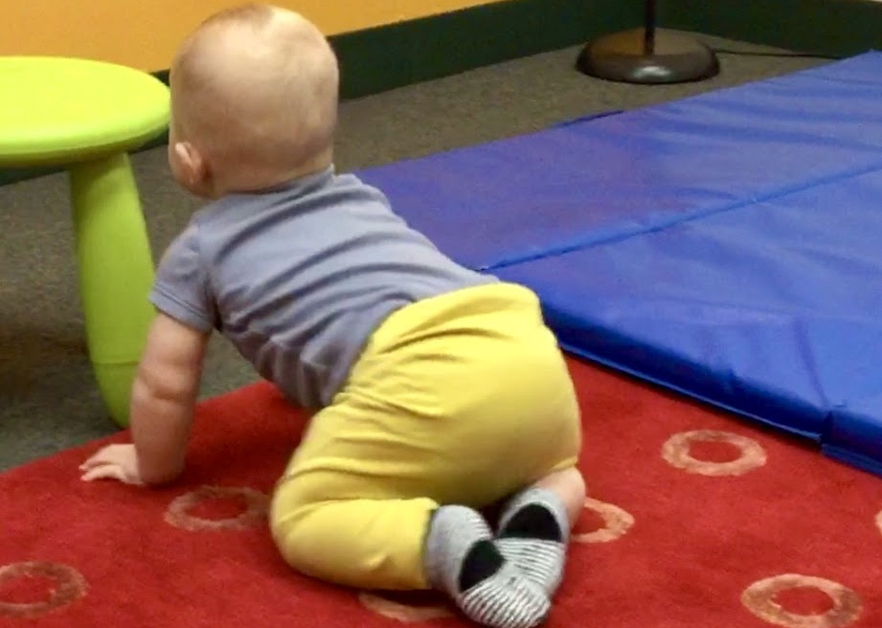Crawling — a Surprising Implication for Every Age!
The theme for this week … crawling’s importance to health at all ages!
How does crawling benefit my child, and even me?
Crawling is generally thought of as a notable milestone for your baby as they grow, transforming from stationary wigglers to little individuals able to explore.
The following study discusses the many facets of crawling, and the health impacts beyond infancy.
Effects of Crawling before Walking: Network Interactions and Longitudinal Associations in 7-Year-Old Children
The article reveals that crawling may be the most effective way to increase early interaction between body composition, cardiovascular system, lung function, motor competence, and physical fitness.
In other words, crawling is generally beneficial for overall health during childhood. As you know, childhood health sets the stage for teen and adult health, so it really is important!
The current Developmental Guidelines by the CDC omitted crawling as an essential milestone. We would suggest crawling be returned to its place in these guidelines because of the many body, brain, and metabolic benefits.
What if you or your child missed all or part of crawling due to any of the following:
- Early life sickness or colic
- C-section trauma
- Multiple (twin)
- Early life hospital stay (NICU)
Not to worry! Bridging® can still put the body’s micromovements together, at any age.
Insight of the week from Becki
 “Is is ok to skip crawling?” or “My baby is crawling in an unusual way — is that ok?”
“Is is ok to skip crawling?” or “My baby is crawling in an unusual way — is that ok?”
These are two questions I get asked as I meet other parents and they find out I am a development and movement specialist.
I work with both children and adults. I find the same movement glitches that impact crawling also impact fluent movement later in life. And they change!
But, back to babies …
At the Bridging® Institute, we tend to meet quite a few little ones who struggle to crawl or did not crawl in the past.
Interestingly enough, here are some of the common things in their background which have disrupted their micromovement repertoire:
- Birth challenges
- Early life medical procedures such as surgery
- Prenatal anomalies such as being a twin, or mom on bedrest
The good news is that Bridging works with infants, and is able to provide a pathway and guidance for your baby to start crawling.
Be prepared for what you wish for though…now they will be able to get into so much more!
Stories from our sessions … “He’s crawling!!!”
Creating a “Bridge” to put the crawling pieces together!
Micromovement disrupters
What’s happened to Will and when?
Birth/Early life: long labor
Injury/Accident: none of note
Illness: congestion, allergies, colic, gas/constipation, reflux
Medical procedures/surgeries: tongue and lip tie release
Getting Will to crawl!
Goal: Help baby Will to begin crawling
Mom’s primary worry is belly pain which is inhibiting tummy time and the skills leading to crawling.
This was mom’s note after his session …
“My son Willam was struggling to crawl because he couldn’t get on his knees without pain. He suffered from allergies and intolerances that made his tummy super uncomfortable.
We tried so many things to help him, including meds, but nothing worked. Then we found the Bridging® Institute.
It took one session with Becki and Will started crawling within a few days. It was incredible!”
– Mom, Leanne

